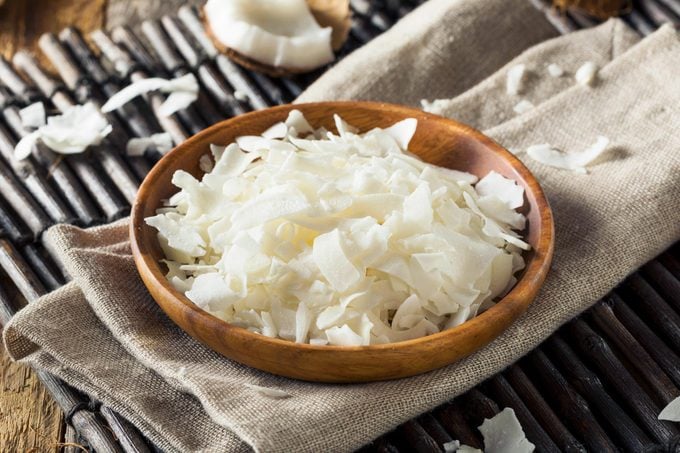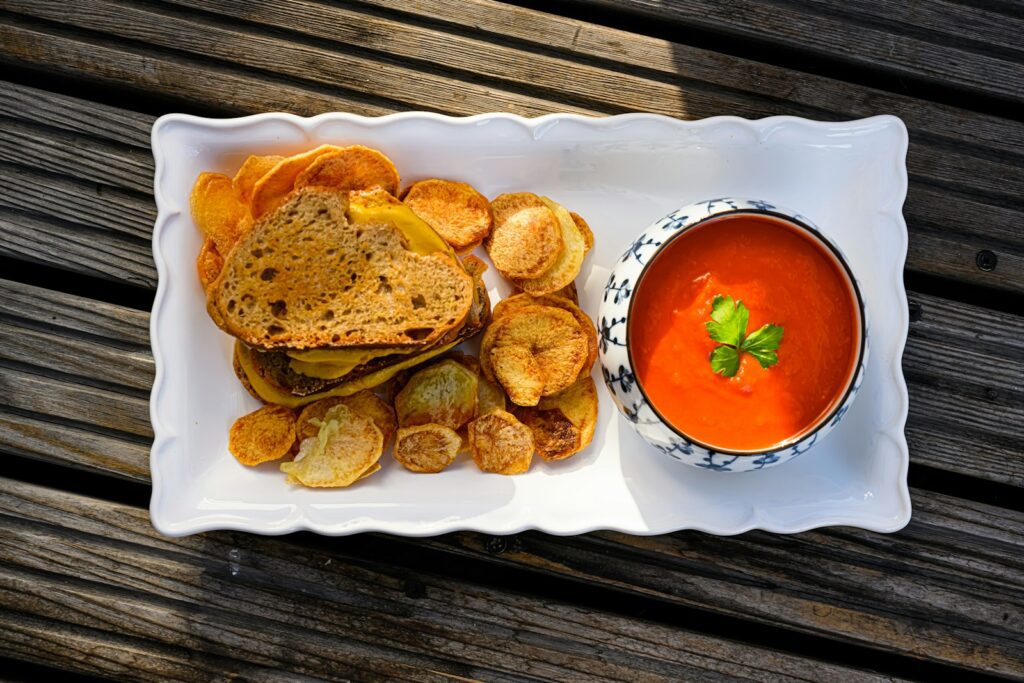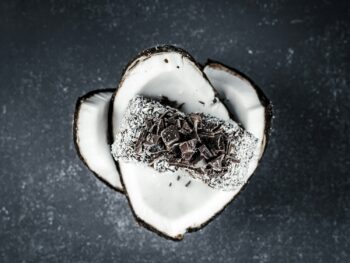
In recent years, the global food landscape has shifted dramatically as more consumers adopt plant-based diets and seek sustainable alternatives to animal products. Whether for health, ethical, or environmental reasons, this movement has created an opportunity for innovative ingredients to take center stage. Among them, coconut flakes—thinly sliced, dried pieces of coconut meat—have emerged as a versatile, nutritious, and eco-friendly option that fits perfectly into the ethos of modern, conscious eating.
This article explores the rise of coconut flakes in sustainable, plant-based diets, focusing on their nutritional value, culinary versatility, role in sustainability, and cultural impact.
The Growing Popularity of Plant-Based Eating
Plant-based diets are no longer limited to a niche group of vegans or vegetarians. Flexitarians and health-conscious consumers are also increasingly reducing animal products in favor of plants. Reports from food industry analysts indicate that the global plant-based food market is projected to grow significantly over the next decade. Consumers are motivated by:
- Health: Lower risk of chronic diseases, improved digestion, and better weight management.
- Ethics: Concern for animal welfare and industrial farming practices.
- Environment: Reducing carbon footprints and conserving natural resources.
In this context, ingredients like coconut flakes are gaining attention as convenient, nutritious, and sustainable solutions that align with the values of plant-based living.
Coconut Flakes: A Nutritional Perspective

Coconut flakes are more than just a crunchy topping. They are nutrient-dense, making them ideal for plant-based diets that must ensure adequate nutrition without animal sources.
- Healthy Fats: They are high in medium-chain triglycerides (MCTs), a type of fat that is metabolized quickly and provides energy.
- Fiber: A rich source of dietary fiber, supporting digestive health and satiety.
- Minerals: Contain essential minerals such as manganese, copper, and iron, which are important for metabolism and red blood cell production.
- Plant-Based Energy: Low in sugar compared to processed snacks, yet naturally energizing.
These qualities make coconut flakes a functional food ingredient—one that provides both nourishment and culinary enjoyment.
Culinary Versatility of Coconut Flakes
One of the main reasons coconut flakes are rising in popularity is their sheer versatility. They can be incorporated into nearly every meal of the day, from breakfast to dinner, and everything in between.
1. Breakfast and Snacks
- Smoothie Bowls: Sprinkled on top for crunch and a tropical flair.
- Granola: Mixed into homemade granola blends with nuts and dried fruits.
- Energy Bites: Combined with dates, oats, and seeds for quick, no-bake snacks.
2. Savory Dishes
- Vegan Bacon Substitute: When seasoned with soy sauce, liquid smoke, or paprika, toasted coconut flakes mimic the texture and smoky flavor of bacon, making them popular in vegan sandwiches and salads.
- Curries and Stir-Fries: Used as garnish or integrated into sauces for added depth.
- Salads: A crunchy topping that adds both nutrition and exotic flair.
3. Baking and Desserts
- Cookies and Cakes: Add chewiness and flavor.
- Chocolate Treats: Paired with dark chocolate for healthy indulgence.
- Puddings and Ice Cream: Enhance creaminess and mouthfeel.
The ability of coconut flakes to serve as both a wholesome ingredient and a creative alternative to animal-based products has accelerated their adoption in plant-based diets.
Coconut Flakes and Sustainability

Beyond nutrition and taste, coconut flakes also appeal to eco-conscious consumers because they are considered more sustainable than many animal-derived or resource-intensive foods.
1. Efficient Use of the Coconut
Coconut flakes are made from the meat of the coconut, a part that might otherwise go underutilized in industries focused on oil or milk production. By processing coconuts into multiple products—water, oil, flour, sugar, and flakes—producers maximize yield and reduce waste.
2. Low Carbon Footprint Compared to Meat
Producing coconut flakes requires far fewer resources—such as water, land, and energy—than raising livestock. For example:
- Cattle farming contributes heavily to methane emissions, deforestation, and water usage.
- Coconut cultivation, on the other hand, is comparatively low-impact, especially when done on existing plantations.
3. Supporting Small Farmers
Coconut production is often carried out by smallholder farmers in tropical regions such as Southeast Asia, the Pacific, and the Caribbean. When paired with fair trade practices, the coconut industry can support rural economies and empower farming communities.
4. Minimal Processing
Unlike heavily processed foods, coconut flakes undergo simple drying and slicing, requiring fewer industrial steps and maintaining much of the coconut’s natural integrity.
For consumers who want to align food choices with environmental responsibility, coconut flakes present a compelling option.
Coconut Flakes as a Meat Substitute
One of the most innovative uses of coconut flakes in plant-based diets is as a meat alternative. While not a complete protein source like soy or seitan, coconut flakes provide texture and flavor that can substitute for meat in certain dishes.
- Coconut Bacon: Crisped in the oven with smoky seasonings, it becomes a plant-based topping for sandwiches, soups, and salads.
- Taco Filling: Combined with black beans and spices, coconut flakes add chewiness to vegan taco recipes.
- Meat-Free Burgers: Blended into patties for added fiber and tropical notes.
These applications highlight how coconut flakes can help plant-based eaters enjoy familiar flavors without compromising their values.
The Role of Coconut Flakes in Global Cuisine

Coconut flakes are not a modern invention. They have long been a staple in many tropical cuisines:
- South Asian Cuisine: Used in curries, chutneys, and sweets like barfi.
- Southeast Asian Cuisine: Integral to desserts and savory dishes, such as Indonesian serundeng (spiced coconut flakes).
- Caribbean Cuisine: Incorporated into pastries, candies, and rice dishes.
As global palates evolve and plant-based eating becomes mainstream, these traditional uses are being rediscovered and adapted to modern lifestyles.
Challenges and Considerations
While coconut flakes have clear benefits, their popularity raises important considerations:
- Monoculture Risks: Expanding coconut plantations can threaten biodiversity if not managed sustainably.
- Labor Concerns: Some regions face issues with fair labor practices. Certifications such as Fair Trade or Rainforest Alliance can help address these concerns.
- Nutrient Balance: While rich in healthy fats, coconut flakes should be consumed in moderation to maintain balanced fat intake.
These challenges remind consumers to seek responsibly sourced coconut flakes and use them as part of a varied, balanced diet.
The Future of Coconut Flakes in Plant-Based Diets

As plant-based eating grows, coconut flakes are likely to expand in popularity, driven by innovation and consumer demand. Possible future trends include:
- Packaged Vegan Snacks: Coconut bacon chips, protein bars, and coconut-based trail mixes.
- Gourmet Applications: Fine dining chefs experimenting with coconut flakes as garnishes or meat replacements.
- Functional Foods: Blending coconut flakes into protein powders or fortified products.
- Sustainable Branding: Companies emphasizing eco-friendly packaging and fair-trade sourcing.
The convergence of sustainability, nutrition, and culinary creativity ensures that coconut flakes will continue to play a prominent role in plant-based diets.
Conclusion
The rise of coconut flakes in sustainable, plant-based diets reflects broader shifts in the way we eat and think about food. Once seen primarily as a baking ingredient, coconut flakes are now celebrated as a versatile, nutritious, and eco-friendly option that aligns with the values of modern consumers. From smoothie bowls to vegan bacon, they showcase the power of simple ingredients to transform cooking and eating habits.
As more people embrace plant-based living, coconut flakes offer not only health and flavor but also a way to support sustainable food systems and cultural culinary traditions. Their journey from tropical farms to global kitchens highlights how humble ingredients can play a powerful role in shaping the future of food.



